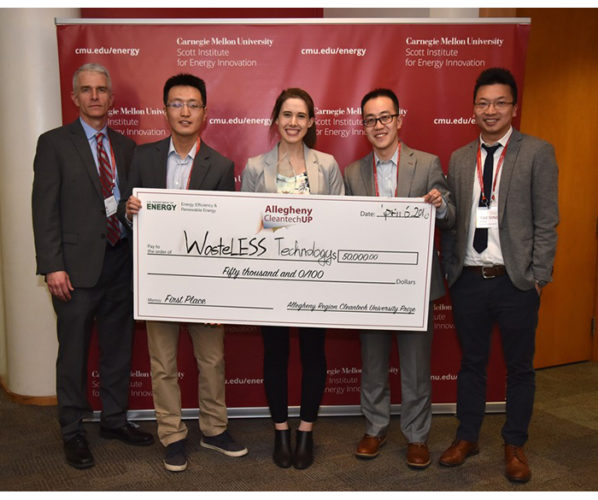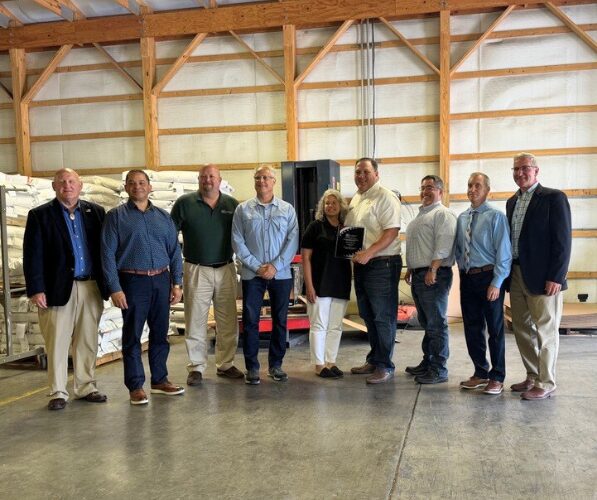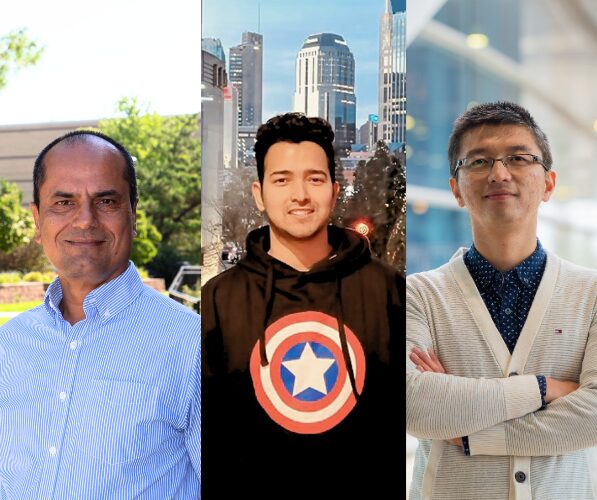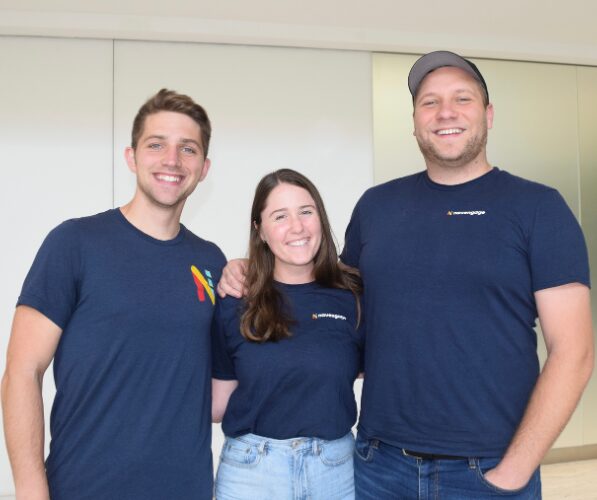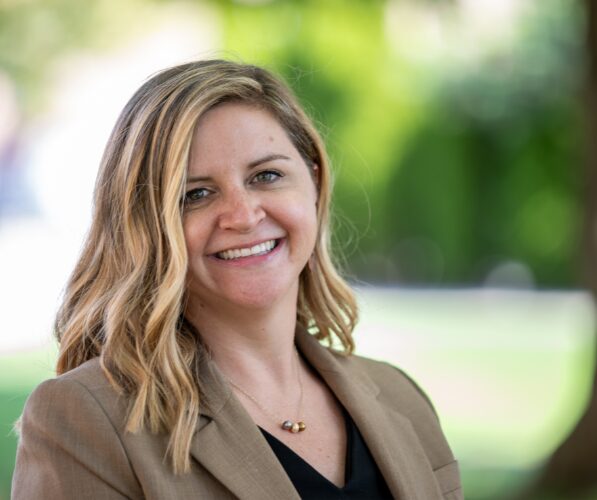Success Story
Penn State Team Wins $50,000 in National CleanTech Competition
When Birgitt Boschitch launched into her sixty second pitch at the 2018 Allegheny Cleantech University Prize Collegiate Competition sponsored by the U.S. Department of Energy, her opening grabbed the audience’s attention. “Poop is a serious problem,” she said. “And it’s an especially big problem when it comes to water conservation, energy, and health.”
She explained that traditional toilets use an unnecessary amount of clean water, a scarce resource in many global communities. Importantly, her team had a solution. Boschitsch, Jing Wang, Nan Sun, doctoral students in mechanical engineering, and Tak-Sing Wong, the Wormley Family Early Career professor and assistant professor of mechanical engineering developed a liquid-entrenched smooth surface (LESS) coating. LESS is a spray-able, anti-fouling coating that can be applied to toilet and sanitation facilities to significantly decrease the volume of water needed to flush a toilet.
LESS was developed by Jing Wang and has had a number of promising early successes. In 2017 the team won the Materials Research Society iMatSci Innovators award . Then, they were selected as a national I-Corps team by the National Science Foundation. After being accepted into the program and doing customer discovery, they realized their technology could increase productivity for custodial service providers and decided to try to develop their product. It turns out Penn State was a perfect place to do that.
“We actually had a conversation with Erik Cagle from the (Penn State) Office of the Physical Plant. We asked him about our coating and if it would be useful to him,” Birgitt explained. “He gave an interesting example that we’d never thought of and it gave us great insight into how small things can scale at a large institution like Penn State that is responsible for 5,400 toilets.”
The NSF I-Corps program provided the team a dedicated industry mentor to provide business expertise, advice on pitch development and funding strategies, and help grow a network of contacts.
“What was really valuable was working with Tim Hurley from the Office of Technology Management. He was our industry mentor for the I-Corps program, and I think he really helped turn us engineers into people with more of a business mindset,” Birgitt say. “I think it was really valuable, not just participating in I-Corps and having the teachers and mentors, but working with Tim on a regular basis. Having a relationship with someone we could ping questions too was very valuable. We still send him questions.”
Hurley made it clear the appreciation went both ways when he said, “It’s been great working with Tak Sing (Dr. Wong) and his group on the commercial development of the WasteLESS technology. Watching the group take on challenges outside of the comfort zone in the lab and embrace the customer discovery process has been a rewarding and valuable experience for me.”
With their National NSF I-Corps team designation, the research team started exploring other Penn State resources that could help them accelerate their technology. They quickly identified the TechCelerator program offered by Ben Franklin Technology Partners as the next step on their path.
“Working with Bob Dornich and our mentor in the TechCelerator, Jerry Hudson, has been great. They’ve connected us with the people we need to be connected to,” Birgitt says. “We got connected with Tom Sharbaugh from Penn State Law Entrepreneur Assistance Clinic at Happy Valley LaunchBox.” The clinic provides advice on company structure, equity agreements and other important startup decisions.
“It’s been neat to compare and contrast our experience in the I-Corps program to the TechCelerator,” Birgitt said. “I-Corps got us into the customer discovery mindset, but TechCelerator has been really helpful in covering all the bases. I-Corps was more focused on value proposition, while TechCelerator has been broad in scope in ways that we need. We’re super happy and impressed with how the TechCelerator and the people in it are so connected and willing to help us in all the ways we need.”
The support system worked; the team won the grand prize of $50,000 to commercially develop their product.
With the competition winnings the team intends to start a company and begin product testing. They still have a ways to go, but they feel confident they’re in the right place.


